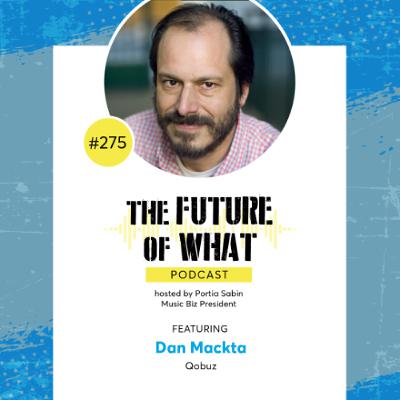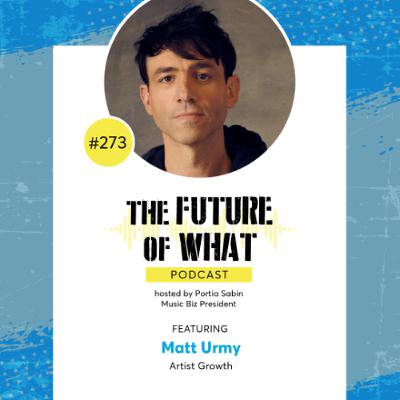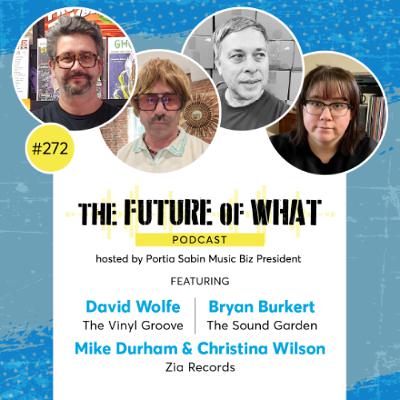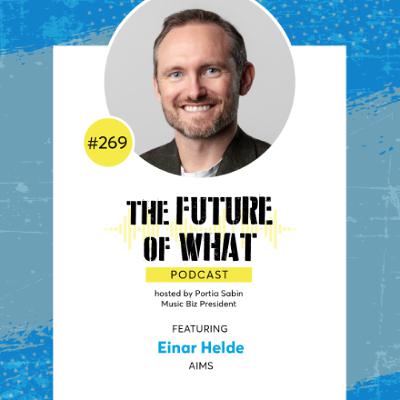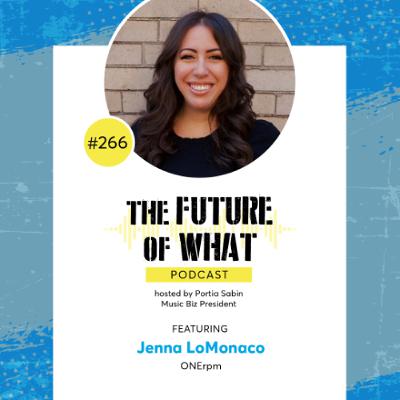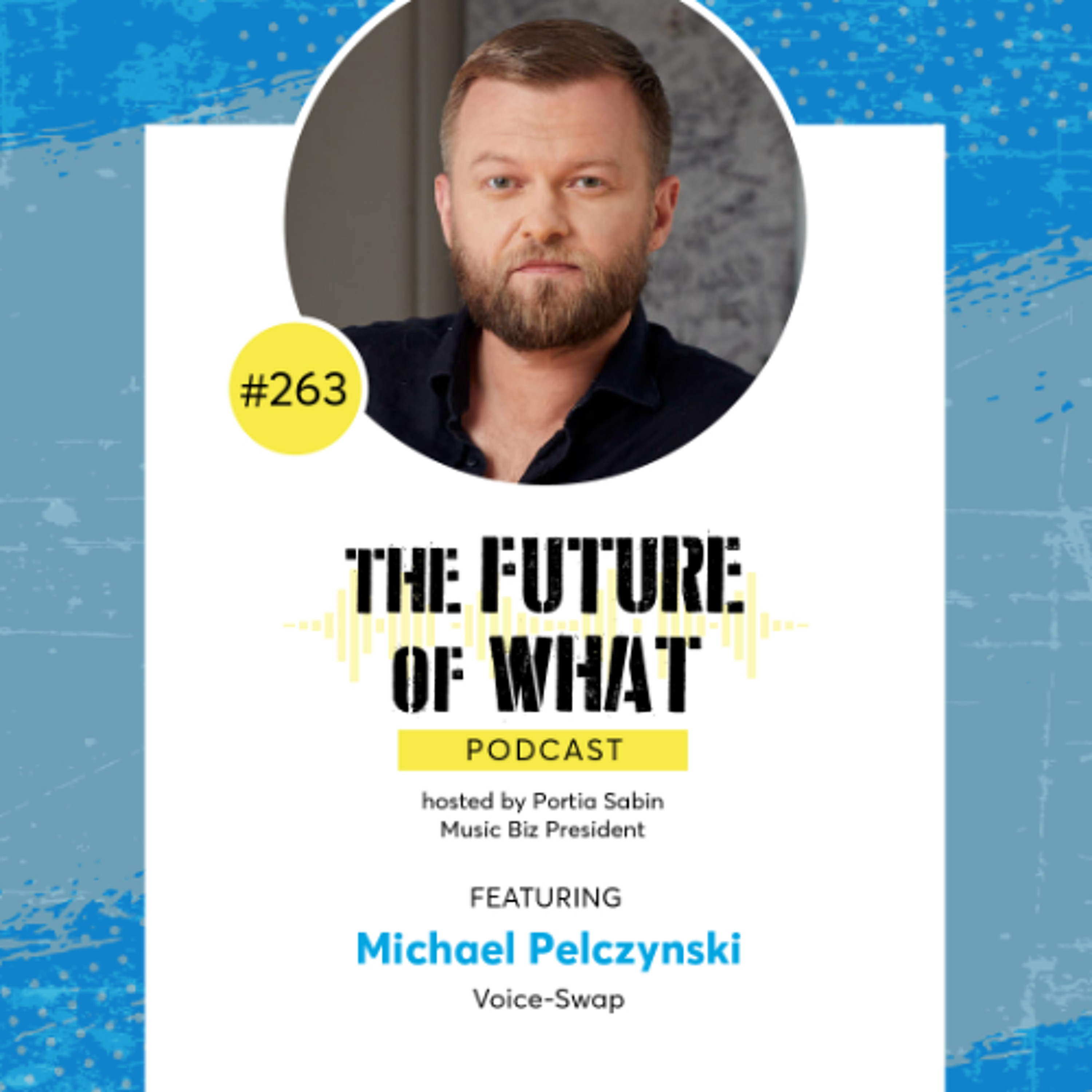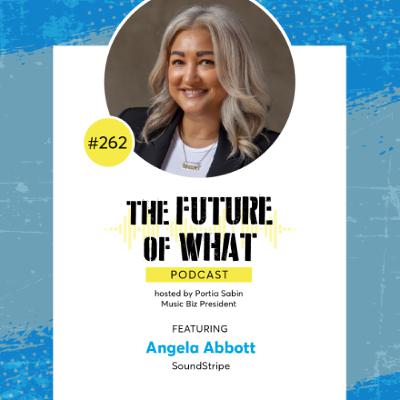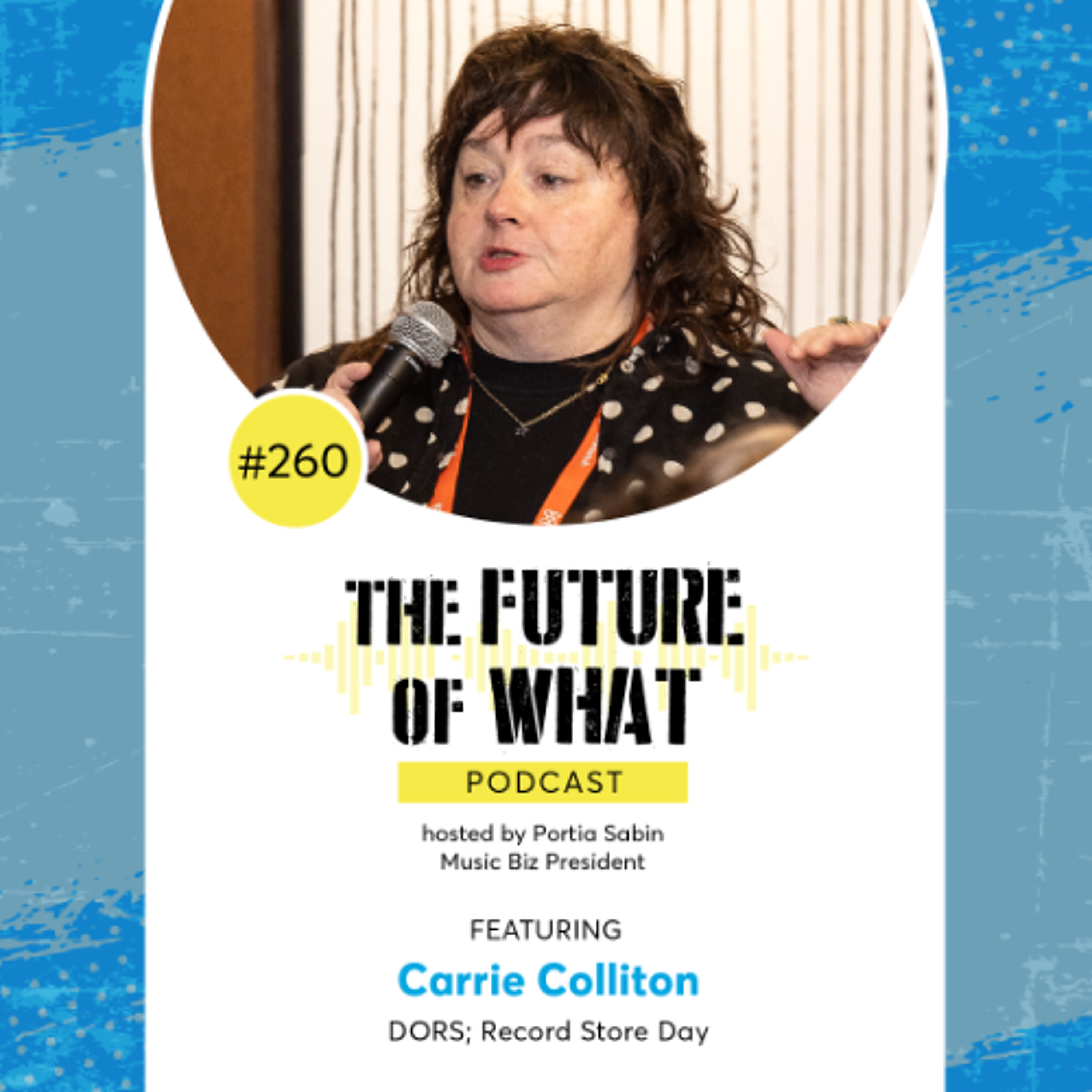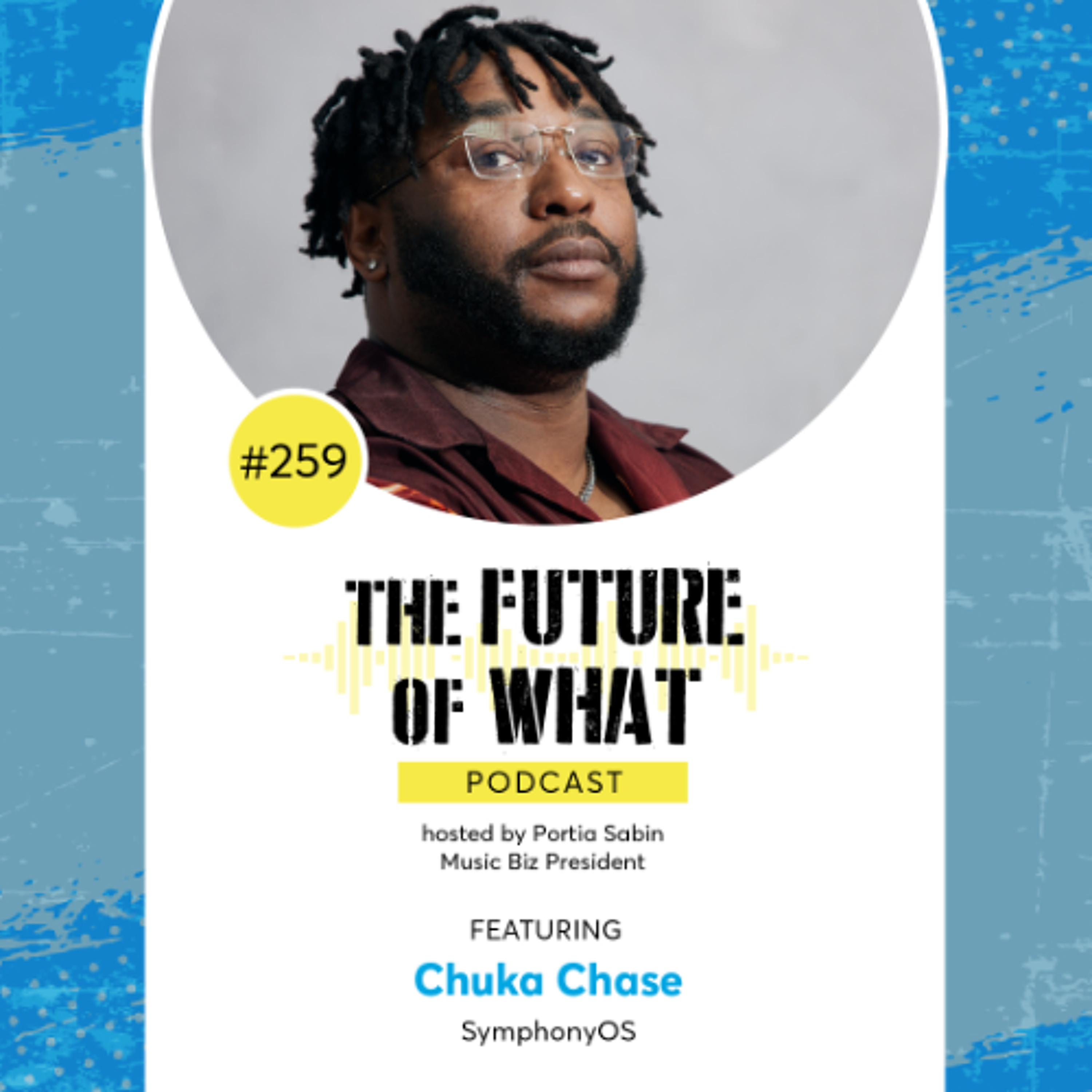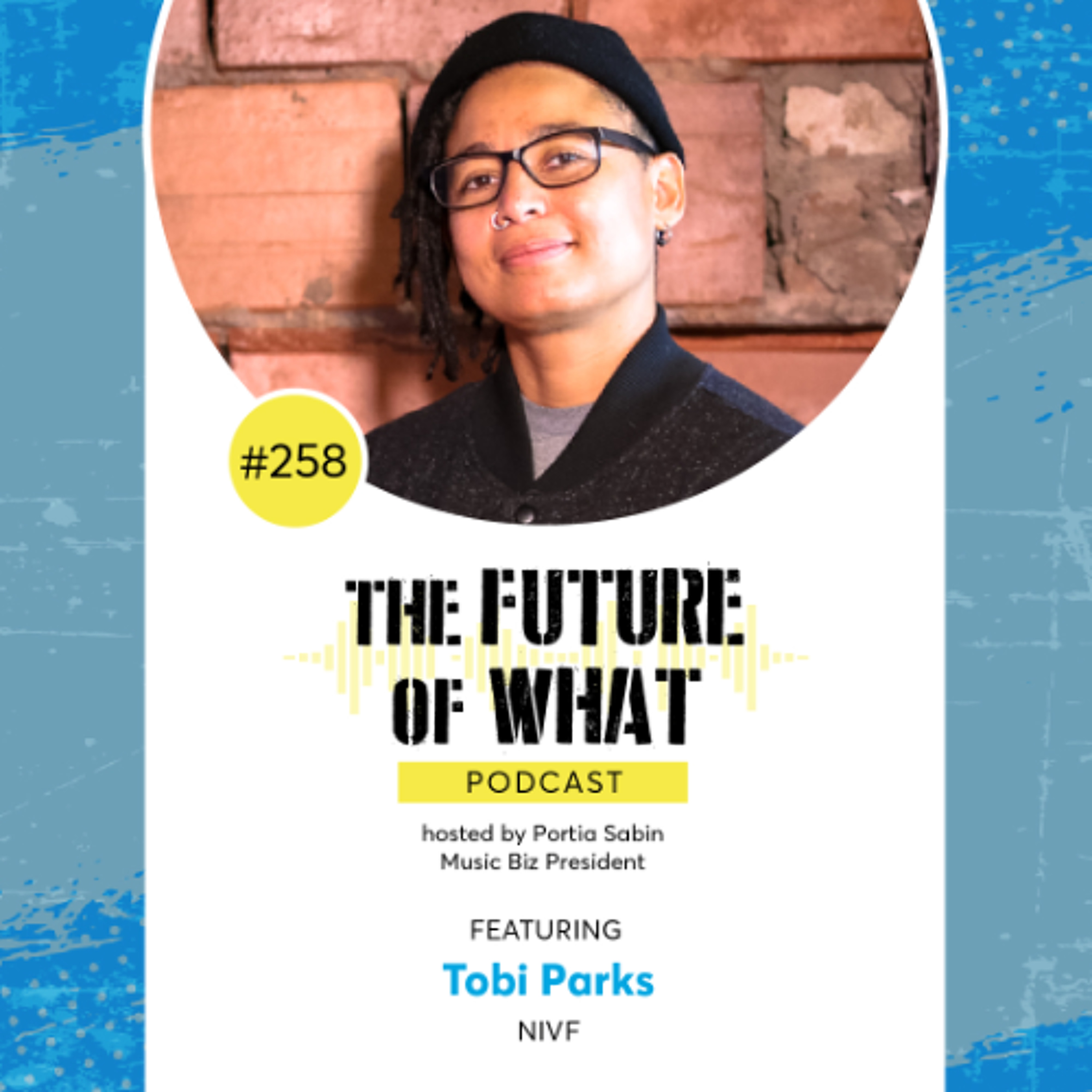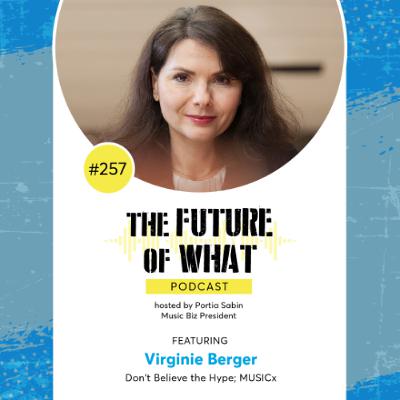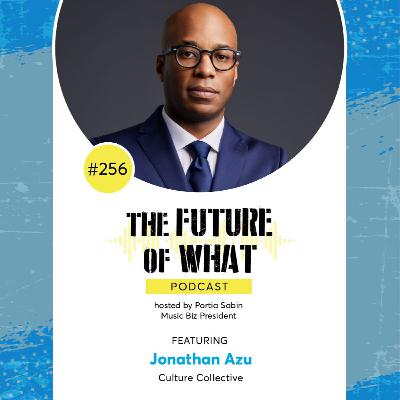Discover The Future of What
The Future of What

The Future of What
Author: Music Business Association
Subscribed: 203Played: 3,868Subscribe
Share
© All rights reserved
Description
Founded by Music Biz President, Portia Sabin as a way to educate musicians on the realities of the music business, The Future of What Podcast has become a forum where the most significant voices in our industry discuss important issues of the day. Tune in as she hosts important industry figureheads and innovators alike in exciting discussions on where the music business is headed next!
307 Episodes
Reverse
What began in 2007 as a hi-res music download store has grown into a vital platform for global music fans eager for a human-curated, high-quality listening experience. Qobuz has had a massive 2025, which saw them peak at #4 on the iOS App Store thanks in part to viral posts calling out their 24-bit hi-res streaming & download offerings and editorial team-led recommendations. This month, we talk to Qobuz’s Managing Director, Dan Mackta about the company’s history & recent success, how the Qobuz experience is akin to shopping for music at your local record store, the many ways it differentiates from the top DSPs of the day, and more!
Hopeless Records has passed its third decade in business since we last had label founder Louis Posen on the podcast, so we caught up with him once again to talk all things Hopeless and indie labels! In this episode, Louis walks us through the unique origin of Hopeless, its early ties with Fat Wreck Chords, and their strong commitment to charity – housing Sub City, Songs That Saved My Life and Hopeless Music Academy as a part of the Hopeless Foundation. He also dives into the importance of knowing both the creative and business side of the industry, the interesting place that indies sit in the music ecosystem today, and how the industry can better approach issues like supply & demand and AI.
The digital age has created a plethora of data resources for artists and their teams, but it has also highlighted the glaring disadvantages of unorganized, siloed workflows within our industry. As an event management, project management and business intelligence platform, Artist Growth is a testament to how more centralized information creates a better picture of exactly what is and isn’t working for an artist in real time. Hear from Artist Growth co-founder & CEO, Matt Urmy as he walks through the platform's history, examines parallels between data sharing practices during the emergence of both streaming and AI, and details two current marketplace pressures that are helping to break data siloes.
In this episode, we caught up with David Wolfe of The Vinyl Groove Records, Brian Burkert of The Sound Garden, and Mike Durham & Christina Wilson of Zia Records, who highlight the everlasting importance of physical music by diving into exciting happenings at each of their stores. Our guests discuss the impact of the recent Luminate + Street Pulse deal, how Black Friday serves as “Record Store Day Lite,” the resurgence of the CD, and the younger generation’s affinity for vinyl. They also touch on the role of record stores as hubs for community and music curation, trends affecting both their customer base and the products hitting the shelves, and much more!
The need for meaningful rights protection will always exist across both the video and audio content industries. Expanding their arm into the audio field with the acquisition of Pex, Vobile now provides solutions for both. We brought Vobile’s SVP of Sales, Larry Mills onto the podcast to discuss the robust sector of the music industry that is fighting against the mass scale of fraud occurring on a daily basis. Mills identifies the important differences between fraudulent assets and fraudulent behavior, along with improvements in fraud-fighting from distributors, and shares upcoming announcements from Vobile on how they’re ensuring ethical AI use!
Consideration of those in a caregiving role is often an afterthought in many industries, but creative industries add an extra layer of challenge due to inconsistent income and schedules. While looking for support in her journey of motherhood while maintaining a career in music, Mamas In Music co-founder Tiff Randol noticed a lack of community, and banded together with Mary Leay to create this support system. We connected with Tiff to discuss the events, partnerships and other initiatives Mamas In Music is looking to put forward, how we as an industry can collectively support mothers better, and much more!
Searching large catalogs via tags can be time-consuming, reinforce biases toward what we already know to save time, and leave a large portion of artist works unexplored. AIMS API looks to utilize AI as an assistive tool for objective and accurate full-catalog discovery via search options that include natural language prompts, similar audio matching, and lyric search to benefit clients working as editors, sound designers, music supervisors, and beyond. In this episode, AIMS CTO Einar Helde unpacks the company’s origins, how their search technologies work, and their upcoming search tool that has already become a sought-after product.
Superfans have been discussed as a promising new revenue stream for artists, and Bootleg is leaning into this concept with an app designed to allow fans to purchase limited release, high-quality audio merch captured from live shows. This platform not only creates direct revenue for touring artists, but helps fans across genres build a community with fellow concert-goers. We spoke with founder Rod Yancy about the app’s offerings, the value The MLC provides in licensing music, how labels are looking to participate with the service, and what's on the horizon!
Killphonic Rights is a creator-founded, full-service music company, with Michelle Fantus serving as Head of A&R. Michelle has witnessed the evolution of artists and repertoire over her tenure in the industry, seeing music consumption go from iTunes downloads to streaming, and now music discovery being redefined by AI & algorithms. While some things have changed for A&R over the past decade, the practice remains the same at its core. In this episode, Michelle walks through the performance measures that A&Rs of both the past and present evaluate, the two “buckets” A&Rs tend to fall into, what this new era of music discovery brings, and more!
As a distributor, publishing company, creator of DIY platform OFFstep and one of the world's largest music MCNs on YouTube, ONErpm is considered a full-service, modern record label. The company puts artists at the forefront by emphasizing transparency & education at both the front end and back end, and even has its own CMS platform for artists to track spending & marketing plans. In this episode, Head of Marketing Jenna LoMonaco details how ONErpm supports & helps to develop their artists’ vision, along with the company’s strategic incorporation of modern tech, and clears up misconceptions on exploitation in the industry.
The Clio Awards have celebrated advertising & creative works across industries dating back to the 1950s, diversifying into different programs over time, including Clio Music in 2014. In this episode, we speak with Michael Kauffman of Clio Music on the three pillars of The Clios, and break it down further into the three award areas of the music branch, along with how to enter. Michael also expands on the true value of recent winning campaigns from around the globe, and the importance of cause-based work & recognition through awards in the music industry and beyond.
In the past, artists needed to sign with record labels who would take out bank loans in order to provide financing. Now thanks to companies like Sound Royalties, artists can receive financing via advances without giving up any ownership. Possible income generating streams for artists have also grown from few to many, transforming music into a viable asset class. In this episode, Alex Heiche discusses how this evolution occurred, the importance of educating artists on where their income is coming from, and more on Sound Royalties – including where & how they operate and the solutions they provide.
Mike Pelczynski has been a part of many important conversations on the subject of AI as the Chief Strategic and Innovation Officer of voice conversion platform, Voice-Swap. These discussions revealed that general sentiments towards AI have shifted from fear to that of constructive concern. In this episode, Mike examines how some issues posed by AI can be addressed using solutions we are already familiar with, the importance of strategic partners for major stakeholders, how the music industry’s approach to AI guides other industries, and more!
Soundstripe is a tech-enabled music licensing company working with brands, agencies and rightsholders, housing 1.5 million users in 160 countries. In this episode, Soundstripe’s Angela Abbott walks us through their licensing process, emphasizing how the platform ensures artists maintain sonic identity. She then imparts advice to early-level professionals, and addresses aspects of licensing that may be overlooked, such as microsync, the importance of valuing licensed music to ad spend, and differences in monetization models from platform to platform.
At Music Biz 2025, Lisa Hresko of A2IM moderated a panel on growth strategies for independent music companies, a topic which she touches upon in this podcast recorded live at the Conference! She further expands the conversation to discuss how artists can “choose their own adventure” in the industry today by tapping into the independent community. Lisa also speaks on A2IM’s current projects, including advocacy for the HITS Act and other legislation.
We spoke with Carrie Colliton of DORS & Record Store Day at Music Biz 2025 about the recent sales surge at indie record stores, how sales data from record stores was on the verge of exclusion from Luminate reporting, and the power of community that brought about the deal to keep that data counted. The conversation also touches on both the positive and the negative effects of streaming on indie music, as streaming helps new fans discover albums they want to own on CD or vinyl but can also devalue music through lower price points. Carrie also talks about how physical music continues to be an expression of personality for music fans, and how it allows for true ownership in the digital age.
We sat down with Chuka Chase, co-founder of SymphonyOS, during Music Biz 2025 to talk about his company, his experience at the Conference, and the convergence of the music and tech industries. He discusses his professional journey which led him from the tech space to music, as he compares and contrasts how both industries operate. He also covers how the internet has made the music industry less siloed, and how SymphonyOS continues this democratization of knowledge for today’s artists. Finally, Chuka shares his experience speaking on a 2025 panel to an audience of startup founders like him.
In this episode, we discuss the motivations behind NIVA’s letter to the US Copyright Office in conversation with Tobi Parks of the National Independent Venue Foundation (NIVF). Tobi disputes the narrative that licensees are just trying to cut costs, explaining how the current PRO system, combined with a lack of education provided to licensees and artists, leaves an untapped pool of money waiting to be fairly distributed. She also dives into the unique issues faced within the US due to having multiple PRO entities, and how discounts provided to large venues, combined with other economic factors, end up hurting small artists and venues.
We caught up with Virginie Berger, Founder of Don’t Believe the Hype and Advisor at MUSICx; fmr. MatchTune during Music Biz 2025 for a conversation covering the sentiments of fear and concern surrounding the uncharted territory that is AI. She addresses the complications and confusion today’s music market faces, current copyright wins & losses, the fine line AI walks in terms of what is & isn’t forbidden, and MatchTune's AI detection and audio fingerprinting solutions. Touching on legislation in the US, UK and Europe, she explains how rushed governance in the past failed to take into account the issues we are facing now. Virginie also discusses her Music Biz panel on what lessons the music business can learn about embracing new tech from the adult entertainment industry, and how the Conference serves as a forum for all types of topics.
This week we speak with Jonathan Azu, founder of Culture Collective, on the state of the live industry, along with some exciting projects & collaborations he’s working on! Jonathan discusses how important it is for executives to diversify themselves in the same way today’s artists do, highlighting the multi-hyphenate approach he has taken for his business by working on tours, TV specials, philanthropic and DEI-related work, and developing artists. Jonathan provides us his expertise, evaluating the consistency of our industry’s DEI initiatives born out of the self-reflection that came from the COVID era, and how large-scale change comes from those in power. He also examines how the live industry has ebbed and flowed as a result of the pandemic, tying together how no matter what venue, city or capacity, a show itself must be great to have longevity.


